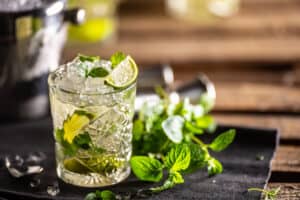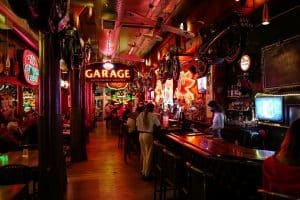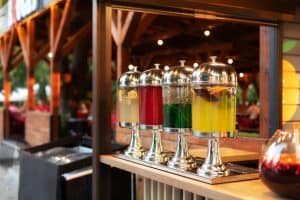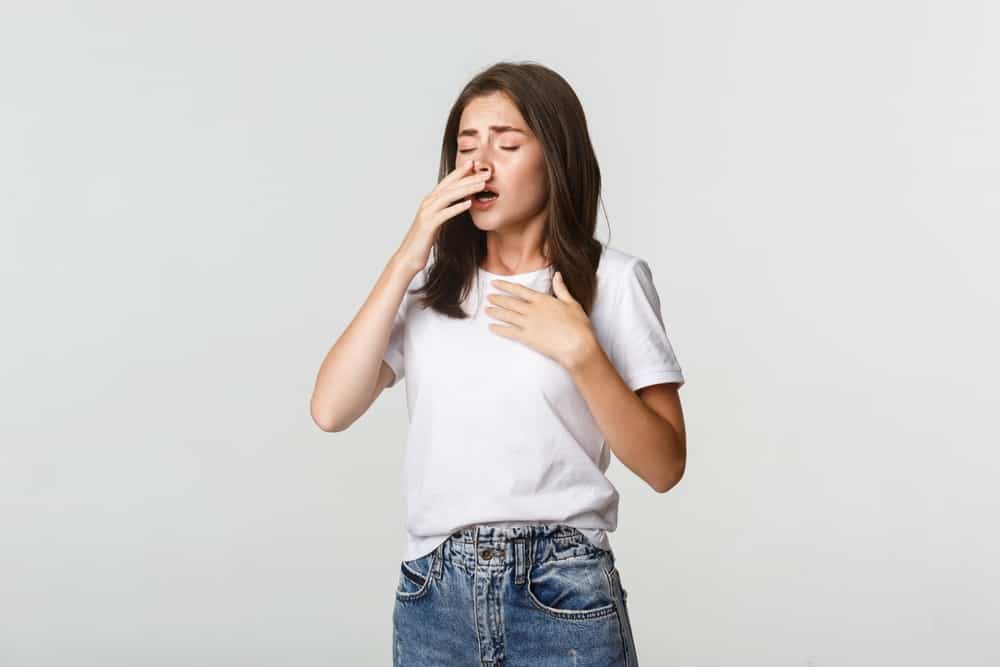
In as much as alcohol is a social lubricant, there’s one little side effect that can put a damper on your party plans: sneezing. That’s right, for some people, drinking alcohol can trigger sneezing fits.
There are a few theories about why this happens. One is that alcohol dilates blood vessels in the nose, which can cause irritation and lead to sneezing. Another possibility is that alcohol irritates the mucous membranes in the nose, causing them to swell and lead to sneezing.
In this article, we’ll explore why sneezing and alcohol sometimes go hand-in-hand. We’ll also provide tips on avoiding sneezing when you drink.
The Reason Behind Sneezing After Drinking
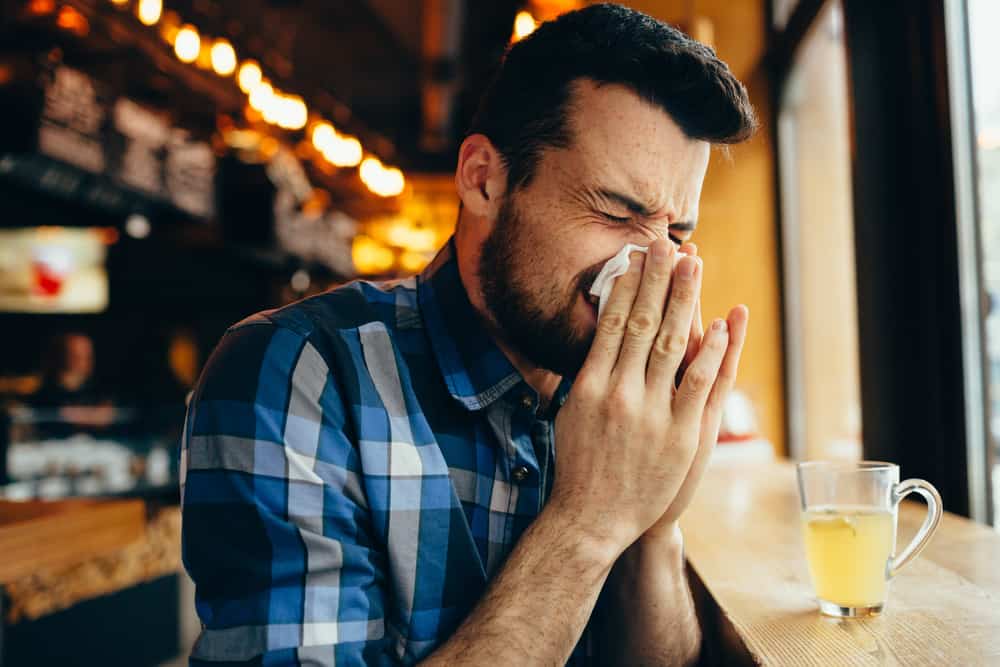
There are a few theories about why this happens. The most likely explanation is that alcohol dilates blood vessels in the nose, which can cause irritation and lead to sneezing.
When you drink alcohol, it’s absorbed into your bloodstream and quickly travels to your brain. As it does, it causes your blood vessels to dilate or widen.
This dilation occurs first in the brain, so you may feel flushed or warm after only a few sips of alcohol. The dilation then extends to blood vessels throughout your body, including those in your nose.
Dilated blood vessels can cause inflammation and swelling in the nasal passages. This can lead to sneezing as well as a runny or stuffy nose. In some people, drinking alcohol may also trigger an allergic reaction, which can cause sneezing and other symptoms.
Drinks That Are Most Likely To Make You Sneeze

Some drinks are more likely to make you sneeze than others. Here are some of the most common offenders:
Wine
For many people, wine is the drink that causes them to sneeze. This is likely because wine contains histamines, which trigger allergies. If you’re allergic to wine, you may notice that you sneeze more after drinking it.
Beer
Like wine, beer also contains histamines, which can trigger sneezing. In addition, beer is often brewed with hops, comprising a compound called lupulin. Lupulin can also cause sneezing in some people.
Cider
Cider is made from apples, which contain quercetin. Quercetin is a plant pigment that has been shown to cause sneezing in some people.
Spirits
Spirits such as vodka and gin can also cause sneezing due to the presence of histamines. In addition, some people find that the alcohol in these drinks irritates their nose, leading to sneezing.
Mixed Drinks
Mixed drinks containing any of the ingredients mentioned earlier are also likely to cause sneezing. If you’re allergic to any of the ingredients in a mixed drink, you may want to avoid it.
What You Can Do To Prevent Sneezing When You Drink
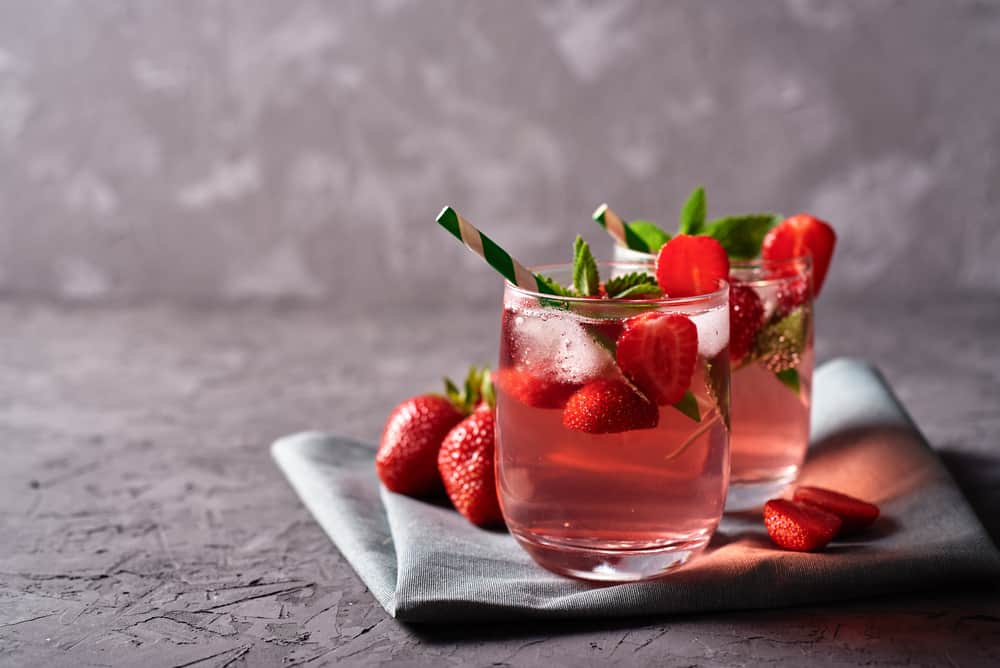
Drinking alcohol, especially spirits, can cause you to sneeze. This is because the alcohol irritates the lining of your nose and throat. Sneezing is your body’s way of getting rid of the irritant. The best measures to take to avoid this are:
Choose a Different Drink
If you find that certain drinks trigger your sneezing, try switching to a different type of alcohol. For example, if wine makes you sneeze, try drinking vodka or gin instead. Likewise, if beer makes you sneeze, try drinking vodka or gin instead. And if cocktails make you sneeze, try making your own with fresh fruit juices instead of pre-made mixes.
Drink Diluted Spirits
If you find that straight spirits make you sneeze, try diluting them with water or soda before you drink them. This will reduce the alcohol in the drink and make it less likely to trigger a sneeze.
Drink Chilled Drinks
If you find that warm drinks make you sneeze, try chilling them before you drink them. This will help to soothe the mucous membranes in your nose and prevent them from swelling and triggering a sneeze.
Drink Through a Straw
If drinking from a glass makes you sneeze, try drinking through a straw instead. This will help reduce your nose’s contact with the drink and make it less likely to trigger a sneeze.
Avoid Histamine-Rich Foods
If you find that certain foods make you sneeze, such as strawberries or shellfish, try avoiding them before you drink. This will help to reduce the number of histamines in your system and make it less likely that they’ll trigger a sneeze.
How To Handle Sneezing if It Happens
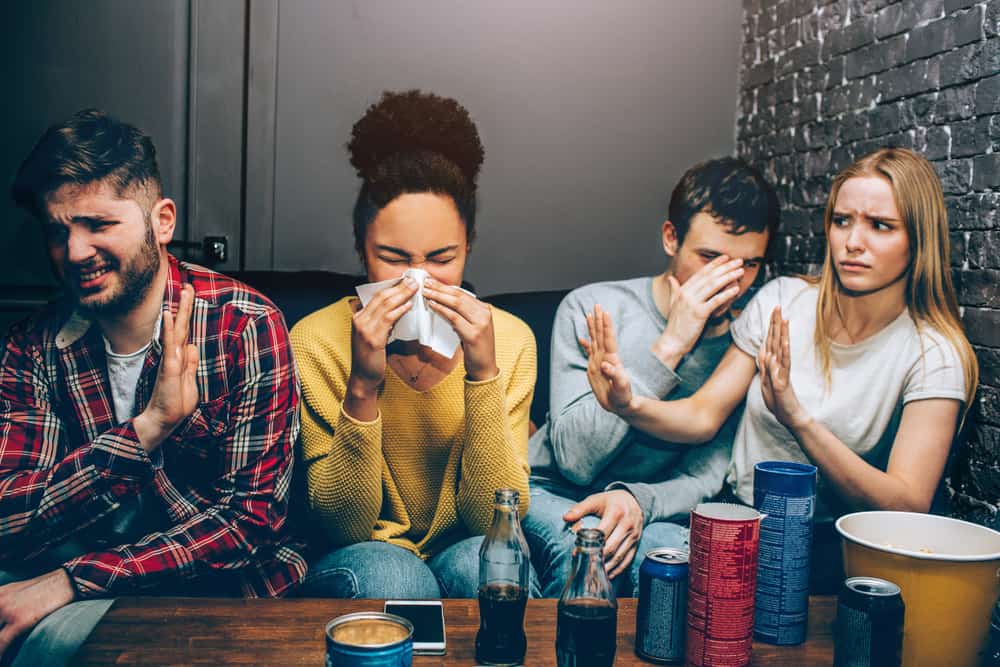
If you do find yourself sneezing after drinking, you can do a few things to help ease the symptoms:
1. Blow Your Nose
Blowing your nose will help remove irritants from your nasal passages and make it less likely that they’ll trigger a sneeze.
2. Rinse Your Nose
Rinsing your nose with salt water or a saline solution will help to soothe the mucous membranes in your nose and reduce inflammation.
3. Drink Plenty of Fluids
Drinking plenty of fluids will help to thin out the mucus in your nose and make it less likely to trigger a sneeze.
4. Take an Antihistamine
Taking an antihistamine will help to reduce the histamines in your system and make it less likely that they’ll trigger a sneeze.
5. Apply a Cold Compress
Applying a cold compress to your nose will help to soothe the mucous membranes in your nose and reduce inflammation.
If you’re frequently sneezing after drinking, you must see a doctor as there may be an underlying condition that needs to be treated. Sneezing is usually not harmful, but it can be a nuisance.
If sneezing impacts your quality of life, talk to your doctor about ways to reduce or eliminate the problem.
Takeaway
Sneezing after drinking is relatively common and is usually not a cause for concern. Histamines generally cause it in the drink, but other irritants can also cause it.
If you’re looking for a way to prevent sneezing when you drink, try making your cocktails with fresh fruit juices instead of using pre-made mixes. This will help reduce the number of histamines in your drink and make it less likely to trigger a sneeze.
If you’re frequently sneezing after drinking, you must see a doctor as there may be an underlying condition that needs to be treated.
Frequently Asked Questions
If you’re allergic to alcohol, you may experience hives, itching, swelling, difficulty breathing, and wheezing. If you experience these symptoms after drinking alcohol, you must see a doctor as you may need to be treated for an allergy.
A few alcohols are less likely to trigger symptoms in people with alcohol intolerance. These include vodka, gin, and tequila. However, if you have alcohol intolerance, you must talk to your doctor about which alcohols are best for you to drink.


